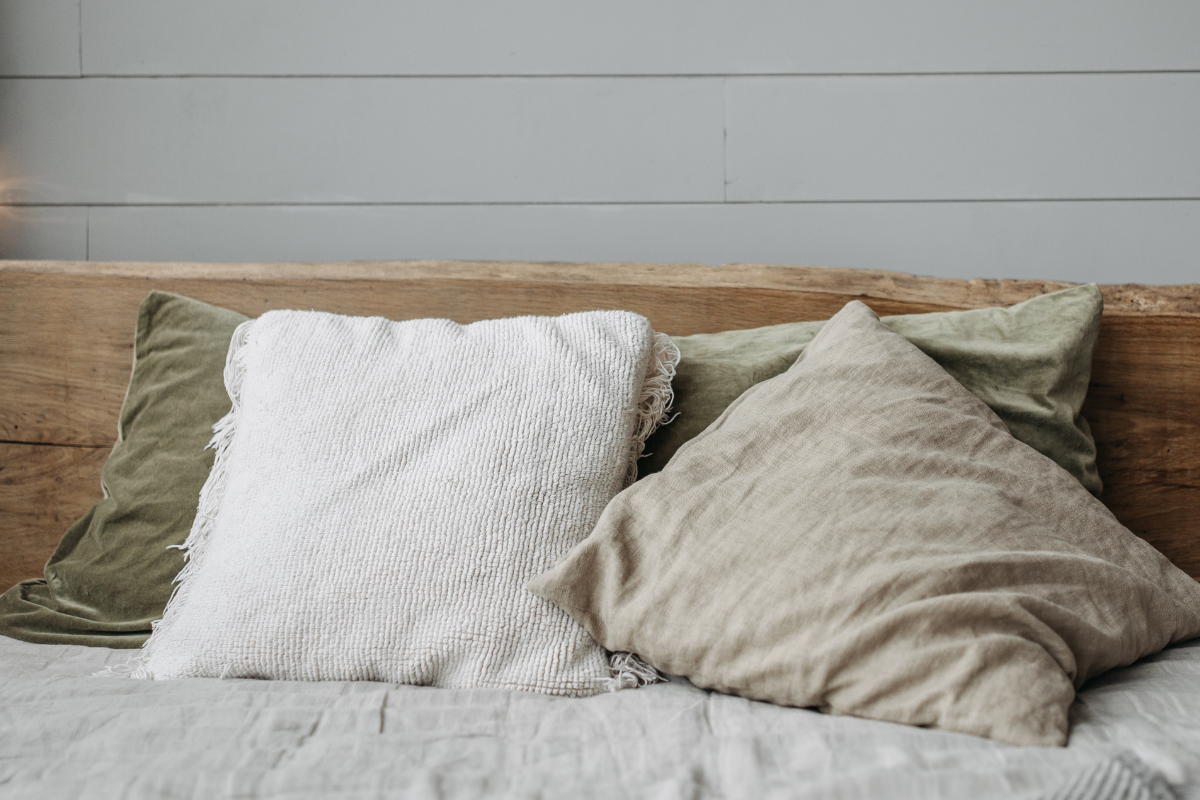We like to think of our beds as sanctuaries - clean, calm, and comforting. But beneath the surface, your bedding might be harbouring a mess you can’t see. Sweat, skin cells, bacteria, and even fungi build up night after night, turning your bed into a microscopic jungle.
So how dirty is your bedding, really? Let’s get into the (lab-backed) truth and what you can do to fix it.
What Science Says About Dirty Bedding
Several lab studies have confirmed what many of us suspected but hoped wasn’t true: the average bed is far from clean.
A 2020 study published in the journal Nature Scientific Reports found that pillowcases and sheets contain hundreds of thousands of bacterial colonies per square inch—sometimes more than a toilet seat.
Another study from the University of Arizona revealed that used bedding can host over 16 species of fungi, including Candida, a common cause of skin and respiratory infections.
Still not convinced?
A Good Morning America swab test found that pillowcases unwashed for just one week contained 17,000 times more bacteria than a toilet seat. Yes, you read that right.
What’s Really Lurking in Your Sheets
Here’s what could be hiding in your bedding right now:
-
Dead skin cells – You shed about 500 million per day, many of which end up in your bed.
-
Sweat & body oils – The average person produces up to 200ml of sweat per night.
-
Dust mites – These microscopic creatures feed on skin cells and thrive in humid environments.
-
Bacteria & fungi – From Staphylococcus aureus to E. coli, bacteria can build up shockingly fast.
-
Pet dander – If your furry friend sleeps beside you, their hair and dander add to the load.
-
Pollen & pollutants – Especially in urban areas, particles from outside can settle in your sheets.
All of these can lead to skin irritation, breakouts, respiratory issues, and poor sleep quality.
How Often Should You Really Wash Your Bedding?
Here’s what the experts recommend:
-
Sheets & pillowcases: Every 7 days
-
Pillows: Wash every 3–6 months, replace every 1–2 years
-
Mattress protectors: Every 2 months
-
Duvet covers: Every 2–4 weeks
-
Duvets: Every 6 months, replace every 5–10 years
And don’t forget: if you’re a hot sleeper, have allergies, or sleep with pets, you should probably be washing even more frequently.
Clean Starts with What You Sleep On
Frequency of washing is one thing. But what your bedding is made from makes a massive difference.
Here’s how natural, breathable materials can reduce microbial build-up and keep your bed fresher for longer:
Eucalyptus Bedding
Made from TENCEL™ lyocell fibres, eucalyptus bedding is:
-
Naturally antibacterial and hypoallergenic
-
Moisture-wicking and breathable
-
Resistant to dust mites and bacteria
-
Cooler and cleaner for longer between washes
Bamboo Pillows
Our bamboo pillows are crafted with recycled fill and bamboo blend, designed by sleep scientists and recommended by osteopaths. They:
-
Resist bacteria and odours
-
Stay breathable and cool
-
Offer soft yet supportive alignment
-
Are suitable for all sleeping positions
When paired with eucalyptus silk pillowcases, it’s a powerful combination for skin health, hygiene, and sleep quality.
The Hygiene - Sleep Connection
Dirty bedding isn’t just gross - it can impact your health in subtle but significant ways:
-
Skin issues: Acne, rashes, or eczema flare-ups can be triggered by dirty sheets.
-
Allergy symptoms: Dust mites and pet dander can worsen allergies and asthma.
-
Poor sleep: Overheating, odours, and general discomfort lead to restless nights.
-
Lower immunity: Chronic poor sleep affects your immune system, making you more vulnerable to illness.
Clean bedding = better sleep = stronger immunity and better mental clarity. It’s a no-brainer.
Ethically Clean, Always
At Ethical Bedding, we’re not just about clean aesthetics, we’re about clean living. That’s why all our products are:
-
Made from certified sustainable materials
-
Free from harmful dyes and toxins
-
Designed to be naturally antibacterial
-
Produced in closed-loop systems that protect the planet
Our mission is to elevate your sleep experience without compromising on health, ethics, or sustainability.
Final Thoughts: Is Your Bed Helping or Harming Your Sleep?
If your bedding isn’t breathable, antibacterial, and regularly cleaned, it’s not just uncomfortable, it’s potentially harmful. Your bed should support your wellbeing, not compromise it.
So, next time you slide under the covers, ask yourself:
Is my bedding working for me or against me?
Ready to Sleep Cleaner?
Explore our range of eucalyptus bedding and bamboo pillows designed to stay fresher, longer, and support your healthiest sleep yet.




Share:
Why Pillows Should Be Replaced Every 2 Years (Or Sooner)
The Gross Truth About Old Pillows: Skin Cells, Sweat & Microbes